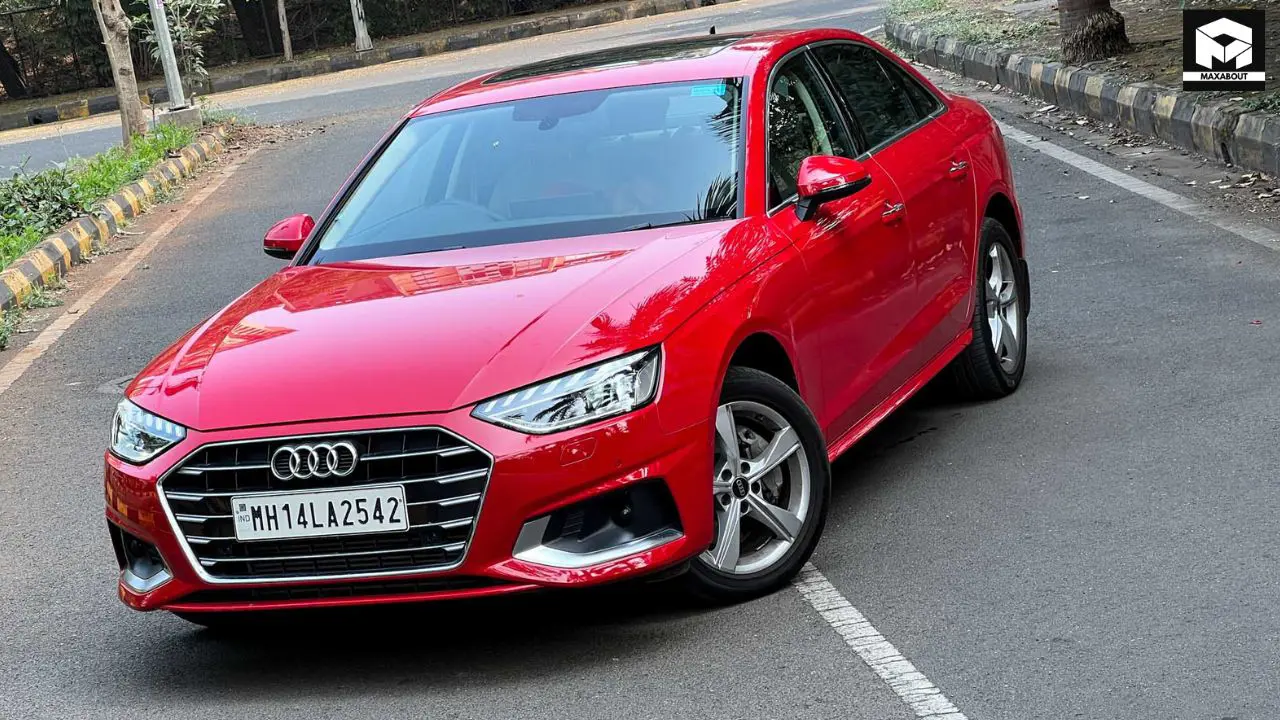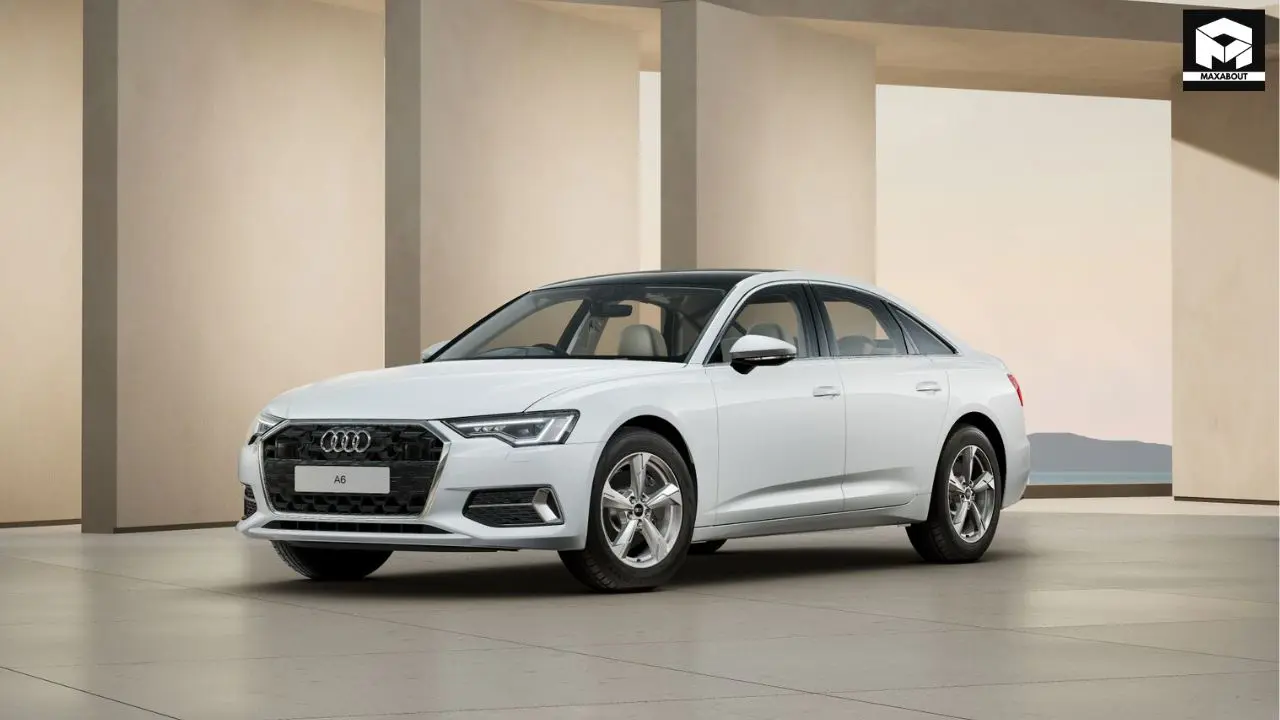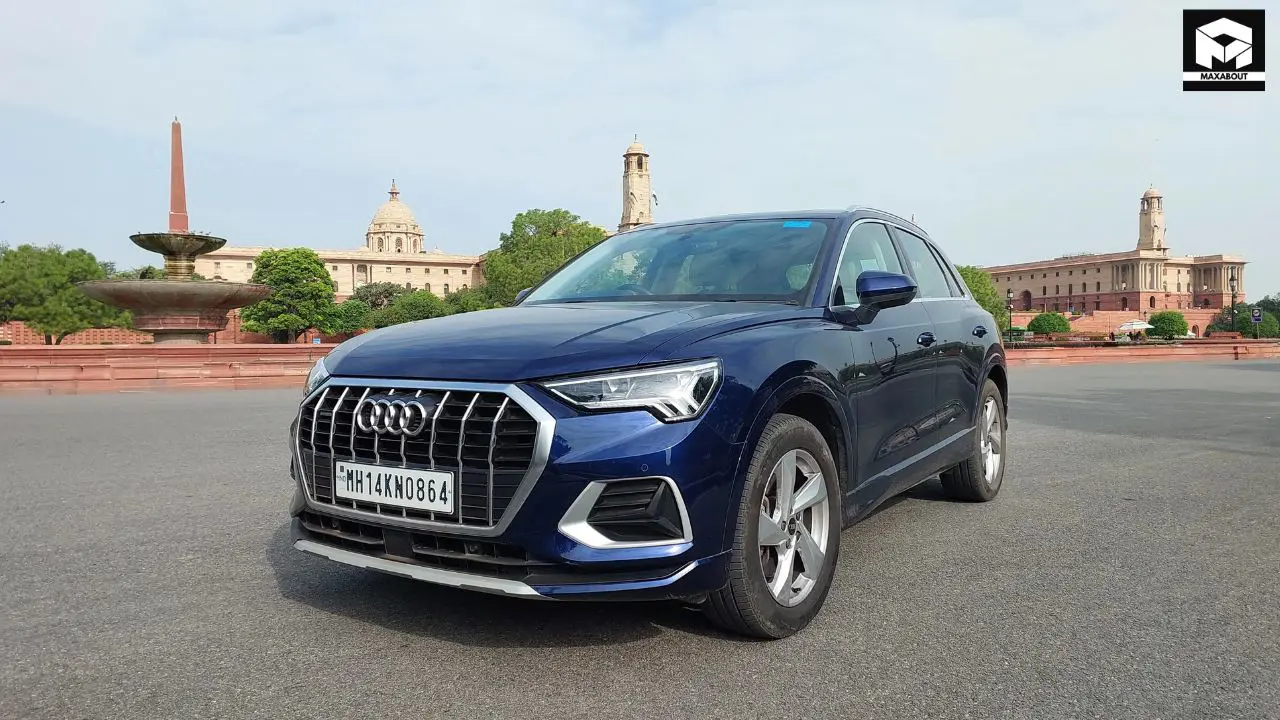Audi India Announces Massive Price Cuts Across Its Lineup
The luxury car market in India just got a lot more interesting. Audi India has made a bold move by significantly reducing prices across its entire model range, with cuts ranging from Rs 2 lakh to an impressive Rs 7.8 lakh. This substantial price revision affects the brand's most popular offerings, including the A4, A6, Q3, Q5, Q7, and Q8 models.
As someone who's been closely following the luxury automotive market in India, I can tell you this is quite remarkable. Price reductions of this magnitude are rarely seen in the premium segment, and this move will likely send ripples throughout the industry. The price cuts appear to be Audi's strategic response to the evolving market dynamics and possibly reflect benefits from recent regulatory adjustments that the company is passing on to customers.
Model-Wise Price Reductions: What's Changed?
Let's break down exactly how much each Audi model's price has been reduced. The price cuts vary significantly across the lineup, with some models seeing more substantial reductions than others.
Audi A4 Price Reduction

The Audi A4, one of the brand's most popular sedans in India, has received a price cut of up to Rs 2 lakh. The A4 competes in the entry-level luxury sedan segment and is often the first step into the Audi brand for many buyers.
Previous price range: Rs 42.34 lakh to Rs 50.34 lakh (ex-showroom)
New price range: Rs 40.34 lakh to Rs 48.34 lakh (ex-showroom)
Price reduction: Rs 2 lakh across all variants
Audi A6 Price Reduction

The Audi A6, the brand's executive luxury sedan, has received a price cut of Rs 5 lakh. This is particularly significant for a model that competes in the highly contested executive sedan segment against rivals like the BMW 5 Series and Mercedes-Benz E-Class.
Previous price range: Rs 59.99 lakh to Rs 65.99 lakh (ex-showroom)
New price range: Rs 54.99 lakh to Rs 60.99 lakh (ex-showroom)
Price reduction: Rs 5 lakh across all variants
Audi Q3 Price Reduction

The Audi Q3, the compact luxury SUV that serves as an entry point into Audi's SUV lineup, has received a price cut of Rs 2.4 lakh. This reduction makes the Q3 more accessible to buyers looking to enter the premium SUV segment.
Previous price range: Rs 44.89 lakh to Rs 52.39 lakh (ex-showroom)
New price range: Rs 42.49 lakh to Rs 49.99 lakh (ex-showroom)
Price reduction: Rs 2.4 lakh across all variants
Audi Q5 Price Reduction

The mid-size luxury SUV Audi Q5 has received a substantial price cut of Rs 5.3 lakh. This reduction significantly enhances the Q5's value proposition in the competitive mid-size luxury SUV segment.
Previous price: Rs 65.19 lakh (ex-showroom)
New price: Rs 59.89 lakh (ex-showroom)
Price reduction: Rs 5.3 lakh
Audi Q7 Price Reduction

The three-row luxury SUV Audi Q7 has received one of the largest price cuts in the lineup, with a reduction of Rs 7.4 lakh. This significant price drop makes the Q7 a more compelling option for buyers looking for a premium three-row SUV.
Previous price: Rs 88.33 lakh (ex-showroom)
New price: Rs 80.93 lakh (ex-showroom)
Price reduction: Rs 7.4 lakh
Audi Q8 Price Reduction

The flagship SUV in Audi's lineup, the Q8, has received the most substantial price cut of Rs 7.8 lakh. This reduction makes the brand's premium SUV coupe more accessible to affluent buyers looking for a statement vehicle.
Previous price range: Rs 1.14 crore to Rs 1.35 crore (ex-showroom)
New price range: Rs 1.07 crore to Rs 1.28 crore (ex-showroom)
Price reduction: Rs 7.8 lakh across variants
What's Behind Audi's Decision to Slash Prices?
Looking at these substantial price reductions, I can identify several strategic factors that likely influenced Audi's decision:
Market Share Strategy
The luxury car market in India is fiercely competitive, with Mercedes-Benz, BMW, and JLR (Jaguar Land Rover) all vying for market share. According to industry reports, Mercedes-Benz has maintained its leadership position in the Indian luxury car market, with BMW following closely behind. These price cuts appear to be part of Audi's strategy to reclaim market share and position itself more competitively against its German rivals.
By making its vehicles more accessible, Audi is casting a wider net to attract buyers who might previously have considered the brand out of their budget range. Industry data shows that even small price adjustments can significantly impact sales volumes in the luxury segment, where price sensitivity exists despite the premium positioning.
Potential Regulatory Changes and Cost Benefits
Recent changes in India's regulatory environment may have created cost efficiencies that Audi is now passing on to customers. The government has been working on reducing import duties for certain components, and there have been adjustments to taxation structures that could benefit automobile manufacturers.
Additionally, Audi's global supply chain optimization might have resulted in cost savings that the company can now share with Indian consumers. The automobile industry has been recovering from pandemic-related supply chain disruptions, and improvements in this area often translate to more competitive pricing.
Responding to Market Demand
The luxury car market in India has been showing signs of recovery after the pandemic-induced slowdown. According to industry reports, the premium car segment grew by approximately 20% in 2022, and continued growth was projected for 2023. Audi's price cuts could be timed to capitalize on this growing demand and improve the brand's sales momentum.
Impact on the Luxury Car Market in India
These substantial price reductions from Audi are likely to create significant ripples across the luxury car market in India. Here's my analysis of the potential impact:
Pressure on Competitors
Audi's price cuts will undoubtedly put pressure on competitors like Mercedes-Benz, BMW, and JLR to reassess their pricing strategies. While these brands might not immediately match Audi's reductions, they may respond with enhanced feature packages, special editions, or financing schemes to maintain their value proposition.
The competitive dynamics in the luxury car segment are finely balanced, and Audi's move disrupts this equilibrium. Market analysis suggests that when one premium brand adjusts pricing significantly, others typically respond with some form of value enhancement to protect their market position.
Increased Accessibility to Luxury Cars
These price cuts effectively lower the entry barrier to the Audi brand, potentially bringing new customers into the luxury car segment. Models like the A4 and Q3, which already serve as gateway vehicles to the brand, become even more accessible with the Rs 2 lakh and Rs 2.4 lakh price reductions, respectively.
The luxury car market in India, while growing, still represents a small fraction of overall automobile sales. Price reductions of this magnitude could help expand the overall luxury segment by attracting buyers who were previously considering premium non-luxury brands.
Potential Impact on Resale Values
One aspect that current Audi owners might be concerned about is the impact of these price cuts on the resale value of their vehicles. Typically, when new car prices drop significantly, it can affect the resale value of existing models in the market.
However, the impact might be mitigated by the fact that luxury cars already face steeper depreciation compared to mass-market vehicles. Additionally, Audi's strong brand equity and the limited supply of well-maintained pre-owned luxury vehicles in India could help buffer any negative effects on resale values.
Buying an Audi in 2023: Is Now the Right Time?
With these substantial price cuts, many potential buyers might be wondering if this is the ideal time to purchase an Audi. Based on the current market conditions and these price revisions, here are some factors to consider:
Value Proposition
There's no denying that these price cuts significantly enhance the value proposition of Audi vehicles. Models like the A6 with a Rs 5 lakh reduction and the Q7 with a Rs 7.4 lakh cut offer substantially more value now than they did before these revisions.
When comparing feature-to-price ratios across competitive brands, Audi's offerings now present a compelling case for consideration. The Q5, for instance, at its new price point of Rs 59.89 lakh, offers features and performance that were previously available only at a much higher price point.
Timing Considerations
From a timing perspective, these price cuts come at an interesting juncture. The automotive industry is in a transition phase, with electrification gaining momentum. Audi has already introduced its e-tron lineup in India, and more electric models are expected in the coming years.
Buyers interested in internal combustion engine vehicles might find this an opportune moment to purchase, as these models now offer exceptional value. However, those interested in electric mobility might want to consider Audi's upcoming electric offerings, though they would likely come at a premium compared to conventional models.
Feature and Technology Package
Despite the price reductions, Audi hasn't announced any changes to the feature packages of these models. This means buyers will still get the same premium features, technology, and performance that Audi is known for, but at a more attractive price point.
The current Audi lineup in India includes advanced features like virtual cockpit displays, premium sound systems, advanced driver assistance systems, and high-quality interior materials. These remain unchanged despite the significant price reductions.
Conclusion: A Win for Luxury Car Buyers in India
Audi's decision to significantly reduce prices across its lineup represents a win for luxury car buyers in India. With reductions ranging from Rs 2 lakh to Rs 7.8 lakh, these premium vehicles are now more accessible than ever before, while still offering the same level of luxury, performance, and technology that the brand is renowned for.
This move reflects Audi's commitment to strengthening its position in the Indian market and responding to evolving consumer expectations. For potential buyers who have been considering an Audi, these price revisions provide an excellent opportunity to step into the premium segment or upgrade to a higher model within the brand's lineup.
As the luxury car market in India continues to evolve, it will be interesting to see how competitors respond to Audi's bold pricing strategy. One thing is certain: the ultimate beneficiary of this competitive landscape is the Indian luxury car buyer, who now has more options at more attractive price points than ever before.
Whether you're looking at the entry-level A4 sedan, the versatile Q3 SUV, or the flagship Q8, there's never been a better time to consider bringing home the four rings. These price cuts make the dream of Audi ownership more accessible while maintaining the premium experience that makes these vehicles special.

